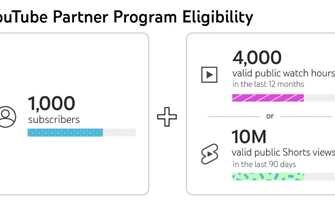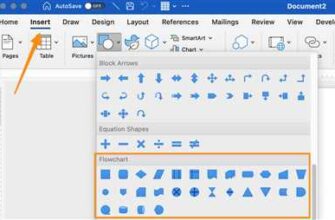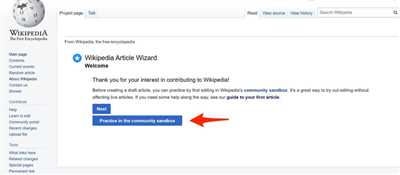
Creating a Wikipedia page isn’t as easy as it may seem at first glance. But with the right guidance and understanding of the platform’s principles, anyone can contribute to the world’s largest online encyclopedia. However, there are rules and guidelines that must be followed to ensure neutrality, accuracy, and reliability of the articles.
First and foremost, it’s important to keep in mind that Wikipedia is not like your personal blog or social media platform where you can freely express your thoughts and opinions. Wikipedia articles need to be unbiased, providing a neutral point of view on the topics they cover. That means you’re not allowed to use the platform as a means to distribute your personal views or showcase your own agenda.
So, what does it take to create a Wikipedia page? The platform provides a step-by-step guide for contributors to follow. To ensure the quality and integrity of the information, there are certain points that need to be considered before starting the creation process. Wikipedia emphasizes the importance of civility, avoiding personal attacks, and maintaining a respectful environment for collaboration.
Another important thing to note is that Wikipedia discourages the creation of pages about individuals who have not achieved a certain level of notoriety or coverage by reliable, third-party sources. If you want to create a Wikipedia page for a person, make sure they have a significant amount of coverage by reputable sources to meet the platform’s criteria.
Before you start writing, it’s crucial to do your research and gather all the necessary information. Ensure that the facts and content you include are verified and supported by reliable sources. Wikipedia takes the accuracy and verifiability of information very seriously, so skimping on this aspect can lead to your page being flagged or deleted.
Lastly, it’s important to disclose any conflicts of interest or paid contribution arrangements. If you have a personal or financial interest in the subject of the page you’re creating, it should be clearly stated and disclosed. Wikipedia requires transparency to maintain the integrity of its content.
In conclusion, creating a Wikipedia page is a process that requires adherence to the platform’s guidelines and principles. By following the rules, conducting thorough research, and providing verified information, you can contribute to the vast knowledge repository that Wikipedia is, ensuring that the content remains accurate, unbiased, and valuable to its readers.
- How to Create a Wikipedia Page for Someone: A Step-by-Step Guide
- How To Create A Wikipedia Page For Someone
- The Policy of Paid-Contribution Disclosure
- 5 tips for securing a Wikipedia page as a solo artist or band
- 1 Be noteworthy
- 2 Keep it strictly neutral
- 3 Use only verified sources & references
- 4 Don’t write it yourself
- 5 Don’t skimp on the detail
- Stay neutral
- Fundamental principles of Wikipedia
- Wikipedia is an encyclopedia
- Wikipedia is written from a neutral point of view
- Wikipedia is free content that anyone can use, edit, and distribute
- Video:
- BEST AI Video Generator || Convert Wikipedia to YouTube Videos With Canva And AI
How to Create a Wikipedia Page for Someone: A Step-by-Step Guide
Creating a Wikipedia page for someone requires following a set of guidelines and understanding the fundamental principles of Wikipedia. While anyone can contribute to Wikipedia, not every name or person is allowed to have a page. This guide will walk you through the process of creating a Wikipedia page for someone and provide tips on how to make it successful.
1. Understand Notability Guidelines
Before you start writing a Wikipedia page, it’s important to ensure that the person you want to create a page for meets Wikipedia’s notability guidelines. Notability is the quality that a person must have to be considered for a Wikipedia page, and it usually depends on their accomplishments, reputation, and coverage in reliable sources such as media articles or references.
2. Conduct In-Depth Research
When creating a Wikipedia page for someone, it’s crucial to include detailed information about their accomplishments, background, and contributions. Take the time to gather as much information as possible from reliable sources to ensure accuracy and provide a comprehensive view of the person.
3. Start with a Neutral Point of View
When writing a Wikipedia page, always maintain a neutral point of view. Avoid using biased language or subjective opinions. Wikipedia’s purpose is to provide objective information, so strive to present a balanced and unbiased view of the person’s life and achievements.
4. Showcase Achievements
Highlight the notable achievements of the person in their respective field. This could be awards, honors, accomplishments, or any significant contributions they’ve made. Use reliable sources to back up these claims and provide citations for each accomplishment mentioned.
5. Follow Wikipedia’s Rules and Guidelines
Wikipedia has specific rules and guidelines that all contributors must follow. Familiarize yourself with these rules, including rules regarding conflicts of interest, paid editing, and sourcing. Failure to follow these rules can lead to the removal or deletion of the page.
6. Ensure Reliable Sources
When creating a Wikipedia page, it’s important to use reliable sources to back up any claims or information provided. Avoid using self-published sources, social media, or any sources that lack credibility. Stick to reputable media articles, books, or other verified sources.
7. Write a Draft and Seek Input
Before publishing a Wikipedia page, it’s a good idea to write a draft and seek input from other experienced Wikipedia editors or contributors. They can provide valuable feedback, suggest changes, or point out any areas that need improvement. This can help ensure the page meets Wikipedia’s standards.
8. Disclose Any Conflicts of Interest
If you have any conflicts of interest with the person you’re creating a page for, such as a personal or business connection, it’s important to disclose it. Transparency is highly valued on Wikipedia, and failure to disclose conflicts of interest can result in the removal of the page.
9. Consider Hiring a Wikipedia Writing Service
If you’re unsure about the process or don’t have the time to create a Wikipedia page yourself, consider hiring a professional Wikipedia writing service. These firms have the expertise and experience in creating Wikipedia pages that comply with all the guidelines and requirements.
10. Publish and Maintain the Page
Once you have created a Wikipedia page, publish it and regularly maintain it. This includes updating information, adding new achievements or developments, and ensuring that the page remains accurate and up to date.
In conclusion, creating a Wikipedia page for someone requires a good understanding of Wikipedia’s guidelines and rules. By following the steps outlined in this guide and adhering to Wikipedia’s principles, you can create a successful Wikipedia page that showcases the accomplishments and notoriety of the person you’re writing about.
How To Create A Wikipedia Page For Someone
Creating a Wikipedia page for someone of interest can be a great way to distribute information about them to the public. However, the process of page creation on Wikipedia is not as easy as it may seem. Wikipedia has certain guidelines and policies that need to be followed in order to ensure that the content being published is unbiased and well-written.
Here are some tips on how to create a Wikipedia page for someone:
- Do your research: Before writing anything, make sure to gather all the necessary information about the person. Look for reliable sources that can be used to support the content you want to include on the page. It’s important to note that personal opinions or unpublished works are not allowed on Wikipedia.
- Follow Wikipedia’s guidelines: Familiarize yourself with Wikipedia’s policies and guidelines, including the Five Pillars and the Notability guidelines. These will help you understand what is considered noteworthy and what sources can be used to support your content.
- Use an unbiased tone: When writing the content for the page, it’s important to treat the subject with neutrality. Wikipedia is not a platform for promoting or advertising, so make sure to present the information objectively without any bias.
- Cite reliable sources: Wikipedia values verifiability, so it’s crucial to include proper references to support the information on the page. Make sure to use reliable and reputable sources that are independent of the subject being written about.
- Collaborate with others: Wikipedia is a collaborative platform, so consider recruiting other contributors to help in the creation and editing process. This can ensure that the content is well-researched and comprehensive.
Creating a Wikipedia page for someone can be a time-consuming process, but following the above points can increase your chances of success. Just remember to stay within Wikipedia’s guidelines and provide accurate and verifiable information for the page.
One thing to note is that Wikipedia is not a platform for self-promotion or for artists to have their own dedicated pages. Pages should only be created for individuals who have made significant contributions or have a notable impact on a particular field.
Also, don’t skimp on references. Wikipedia needs reliable and verifiable sources to back up the information provided. Without proper references, the page may be flagged for deletion or marked as unreliable.
In conclusion, creating a Wikipedia page for someone requires careful attention to detail and adherence to Wikipedia’s policies and guidelines. By following the right steps and providing accurate and unbiased information, you can contribute to the free dissemination of knowledge on this platform.
| Firm | References |
| Another | Chances |
| Course | Principles |
The Policy of Paid-Contribution Disclosure
One important thing to note about Wikipedia’s content creation process is the policy of paid-contribution disclosure. While anyone is allowed to edit and contribute to Wikipedia articles, it is of course important to maintain transparency when it comes to paid contributions. This policy ensures that the information provided on Wikipedia is open and can be trusted by its readers.
Wikipedia’s content is created and edited by a diverse community of volunteers, including researchers, writers, editors, artists, and more. The point is to provide reliable and unbiased content for everyone to use.
When you start creating or editing Wikipedia pages, it’s always a good idea to follow a guide to ensure that your content meets the necessary standards. Wikipedia provides a step-by-step guide on how to create articles, which can be a useful resource.
- Use reliable and verifiable sources.
- Ensure that any changes made are neutral and unbiased.
- Include references and citations for the information provided.
It is important to ensure that the content you’re creating follows the fundamental principles of Wikipedia, which include neutrality, accuracy, and verifiability. This means that the information should be presented in an unbiased manner, supported by reliable sources, and can be fact-checked by readers.
When creating or editing Wikipedia pages, it’s a good practice to stay transparent and disclose any conflicts of interest or paid contributions. This ensures that the readers can have a clear view of the content and its sources.
Wikipedia accepts contributions from anyone, whether they are paid or not. However, it is important to follow the guidelines and policies to maintain the integrity and reliability of the platform. If you’re a paid contributor, it’s essential to disclose this information to the community and provide accurate and well-researched content.
Here are some tips to ensure transparency as a paid contributor:
- Disclose your paid status on your user page.
- Make sure that the content you’re providing is well-researched, accurate, and unbiased.
- Cite credible and verifiable sources for the information.
- Collaborate with the community and be open to feedback and suggestions.
- Understand that Wikipedia is not a platform for promotion or advertising; it is a platform for providing reliable and neutral information.
By following these tips and guidelines, you can contribute to Wikipedia in a responsible and ethical manner, ensuring that the platform continues to provide valuable information to its readers.
5 tips for securing a Wikipedia page as a solo artist or band
Creating a Wikipedia page for yourself as a solo artist or band can be a great way to showcase your talent and gain notoriety. However, it’s important to follow certain guidelines and principles in order to create a page that is accepted and respected by the Wikipedia community. Here are 5 tips to help you secure a Wikipedia page as a solo artist or band:
- Start with the fundamentals: Before you even begin the process of creating a Wikipedia page, it’s crucial to familiarize yourself with Wikipedia’s rules and guidelines. Make sure you understand the basic principles of content creation and how Wikipedia works.
- Prove your notability: Wikipedia requires that all topics have a certain amount of notability in order to merit a page. As a solo artist or band, you will need to provide evidence of your notability, such as significant coverage in reliable sources like music publications, interviews, or awards.
- Stay respectful and civil: While editing and collaborating with other contributors on Wikipedia, it’s important to treat everyone with respect and civility. Remember that Wikipedia is a collaborative platform, and being polite and considerate will increase your chances of having your edits accepted.
- Consider paid contributions carefully: While it is possible to hire a professional Wikipedia editor or contributor to create or edit your page, you should approach paid contributions with caution. Wikipedia has strict rules regarding paid editing, and it’s crucial to ensure that the paid contributor adheres to Wikipedia’s guidelines and standards.
- Showcase your detail and being noteworthy: When creating your Wikipedia page, make sure to provide as much detail as possible about your career, achievements, and contributions to the music industry. Highlight any noteworthy projects, collaborations, or performances that demonstrate your talent and success.
By following these tips, you can increase your chances of securing a Wikipedia page as a solo artist or band and have a well-written, credible page that accurately represents your work and talent.
1 Be noteworthy
Before creating a Wikipedia page, it is important to ensure that the topic you want to write about meets the criteria for notability. Notability is one of the key points to consider when understanding the guidelines set by Wikipedia.
To be considered notable, a topic must have received significant coverage in reliable sources that are independent of the subject. This means that the information should come from reputable sources such as books, newspapers, magazines, or well-known websites that are recognized for their trustworthiness.
When creating a Wikipedia page, it is crucial to include references to verify the claims made in the article. These references should be from reliable sources and should provide an understanding of the subject’s notability.
One way to ensure that your topic is notable is by looking at how other well-known pages on Wikipedia are written. Take note of the formatting style, content, and sources used in these articles. This will give you a better idea of what kind of information needs to be included to meet the notability requirements.
Additionally, it is important to follow a neutral point of view when writing articles. This means that the content should be written in a balanced and unbiased manner, without expressing personal opinions or favoring one perspective over another.
Another aspect to consider is the use of reliable sources. Wikipedia is a platform that values verifiability and accuracy. As an editor, you must ensure that the information you include in the article is supported by credible sources.
Furthermore, it is crucial to respect Wikipedia’s policies and guidelines when creating a page. This includes avoiding any form of self-promotion or advertising. Wikipedia is not a platform for recruiting customers or showcasing your products or services. Instead, it is a platform for sharing objective and well-researched information.
It is worth noting that Wikipedia articles should not be written as a personal biography or a social media profile. The focus should be on providing factual information and staying true to the purpose of an encyclopedia.
While anyone can create a Wikipedia page, it is a good practice to disclose any potential conflicts of interest you may have. If you are associated with the subject in any way, it is important to disclose this information on the talk page or on the article itself.
To summarize, before creating a Wikipedia page, make sure your topic is noteworthy and meets the notability criteria. Follow the guidelines for writing neutral and well-referenced articles, and respect the platform’s policies. By doing so, you will contribute to the creation of high-quality and reliable content on Wikipedia.
2 Keep it strictly neutral
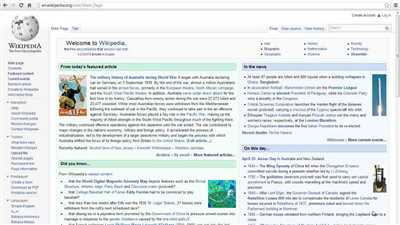
One of the key principles of writing a Wikipedia page is to maintain a firm sense of neutrality. Wikipedia is an encyclopedia, and its content should be unbiased and objective. This means that when writing about a topic, you should avoid any personal opinions or biases and stick to providing factual information without taking sides.
To ensure neutrality, it is important to distribute information evenly on the page. This means that if a topic has multiple viewpoints or controversies, they should all be mentioned, and each side should be given space to present their arguments. By doing so, you can create a balanced and comprehensive article that provides readers with a fair understanding of the subject.
It is also crucial to avoid any promotional language or tone. Wikipedia is not a platform for self-promotion or advertising, so it is important to refrain from using language that could enhance the notoriety of a person, organization, or product. Instead, focus on providing an informative and neutral perspective.
When it comes to writing about individuals or organizations, such as bands or solo artists, it is important to follow Wikipedia’s guidelines for biographies of living people. This means that any claims or information must be supported by reliable sources and must be written in a neutral and encyclopedic manner. While it is acceptable to mention achievements or awards, it is important to avoid using excessive promotional language and to provide a balanced view by including both positive and negative aspects, if applicable.
Wikipedia’s neutral point of view policy is one of its four key content policies, alongside verifiability, no original research, and notability. These pillars help establish the standards for writing and editing articles on the platform.
Contributors to Wikipedia should understand that they are not writing for themselves or being paid for their work. Instead, they are proving information for the general public, so the content should be accessible, neutral, and reliable. Editors should also be aware that their contributions will be open to further scrutiny and may be edited or removed by other editors.
In order to ensure neutrality, it is also important to follow Wikipedia’s guidelines for civility and the use of reliable sources. Contributions should be respectfully made, and conflicts should be resolved through discussion and consensus. Reliable sources should be cited to back up any claims or statements.
In summary, to keep a Wikipedia page strictly neutral, contributors should adhere to the following principles:
- Stick to providing factual information without personal opinions or biases.
- Distribute information evenly to present a balanced view of the topic.
- Avoid promotional language or tone.
- Follow guidelines for writing about individuals or organizations, ensuring a neutral and encyclopedic approach.
- Understand and follow Wikipedia’s four key content policies: neutral point of view, verifiability, no original research, and notability.
- Write for the general public, not for personal gain or payment.
- Be prepared for contributions to be scrutinized and potentially edited or removed by other editors.
- Follow guidelines for civility and use reliable sources to support claims.
By adhering to these principles, contributors can help maintain the integrity and neutrality of Wikipedia’s content, ensuring that it remains a reliable and trustworthy source of information.
3 Use only verified sources & references
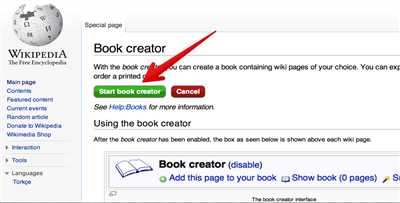
When creating a Wikipedia page, it is crucial to ensure the accuracy and reliability of the information provided. To maintain a high standard of credibility, it is essential to use only verified sources and references.
Wikipedia, as a user-edited encyclopedia, accepts content from various sources, but not all sources are reliable or suitable for citation. The Five Fundamental Principles of Wikipedia guide the sourcing process, ensuring that content presented is accurate, unbiased, and verifiable.
When selecting sources, it is important to look for well-known and reputable sources. These include books, scholarly articles, published reports, news outlets, government publications, and academic journals. Such sources provide a wealth of information and are generally considered reliable.
While personal blogs and social media may contain useful information, they are not considered reliable sources. Wikipedia values verifiability, and hence, information from these sources may not be accepted as valid references.
It is also important to note that notability plays a significant role in the sourcing process. To ensure the article’s relevance and popularity, sources should demonstrate that the subject has received significant media attention or has had a significant impact on a particular field or society.
Additionally, it is crucial to stay up-to-date with changes in Wikipedia’s policies. The community of contributors constantly works to improve the encyclopedia, which may result in changes to sourcing guidelines. It is vital to familiarize yourself with these changes and adapt your sourcing practices accordingly.
To distribute the burden of verification, Wikipedia encourages multiple contributors to verify information independently. If a particular piece of information receives scrutiny from several contributors, it helps ensure its accuracy and provides a well-rounded view on the subject.
In summary, when creating a Wikipedia page, make sure to:
1. Use verified and reliable sources – Look for well-known publications, scholarly sources, and government reports.
2. Ensure notability – Verify that the subject has received significant media attention or has had a significant impact.
3. Stay updated with policy changes – Familiarize yourself with Wikipedia’s policies to understand the latest sourcing guidelines.
4. Distribute the burden of verification – Encourage multiple contributors to independently verify information for accuracy and completeness.
Following these tips will not only ensure the accuracy and reliability of the information presented but also contribute to the integrity and quality of Wikipedia as a whole.
4 Don’t write it yourself
While it may be tempting to create your own Wikipedia page to showcase your achievements or promote your business, the process of creating a Wikipedia page should be strictly neutral and based on reliable sources. It is not a platform for self-promotion.
One of the fundamental rules of Wikipedia is that all content should be verifiable and based on reliable sources. This means that you can’t simply write about yourself or your own organization without providing sources that can prove the information’s accuracy and notability.
Writing a Wikipedia article about yourself or your business can also lead to conflicts of interest. Even if you have good intentions, others may view your edits as biased or promotional. It’s important to keep in mind that Wikipedia aims to provide a neutral point of view and avoid any advertising or self-promotion.
If you have a great interest or expertise in a particular topic and want to contribute to Wikipedia, there are better ways to do so. You can start by editing existing articles, adding valuable information, or creating new articles on topics that are not yet covered well-known Wikipedia pages. By contributing to Wikipedia in a neutral and constructive manner, you can help improve the quality and coverage of the content on the platform.
It’s also worth noting that Wikipedia has a strict policy against paid editing. This means that you should not use Wikipedia to promote your business or pay someone else to create and edit a page for you. Doing so may result in your page being deleted or even legal consequences.
If you still want to create a Wikipedia page but are not sure how to do it properly, there are professional Wikipedia page creation services available. These services can help you navigate the rules and guidelines of Wikipedia, ensuring that your page meets the necessary criteria and is published in accordance with Wikipedia’s policies and guidelines.
In conclusion, while creating a Wikipedia page may seem like an easy way to promote yourself or your business, it’s important to understand the rules and guidelines that govern the platform. Writing about yourself or your organization without proper sourcing and neutrality is not allowed, and it’s better to contribute to Wikipedia in a way that benefits the community as a whole.
5 Don’t skimp on the detail
When creating a Wikipedia page, it is important not to skimp on the detail. The purpose of Wikipedia is to provide comprehensive and accurate information on various topics, including artists, principles, and sources. By providing detailed information, you can ensure that anyone who reads the page will have a better understanding of the subject.
One of the fundamental principles of Wikipedia is to be an unbiased and open platform. To stay true to this principle, it is crucial to include information from reliable sources and references. Make sure to cite every source properly and use the appropriate format for references.
Another important point is to show respect for the subject of the page. If you are creating a page for a solo artist or a band, make sure to highlight their achievements, discography, and any well-known performances. This will not only showcase their work but also give readers an idea of their contribution to the music industry.
Wikipedia is a collaborative platform, and anyone can contribute to its pages. However, it is not a personal blog or a platform for self-promotion. So, when creating a Wikipedia page, make sure to keep it neutral and avoid personal opinions or biases. Stick to the facts and provide information that is relevant and of interest to the readers.
It is important to keep in mind that Wikipedia has strict rules and guidelines that every contributor should follow. Before creating a page or making any changes, make sure to familiarize yourself with these rules. Understanding the guidelines will not only help you create a better page but also increase your chances of getting your edits approved by other editors.
If you’re recruiting contributors to create or edit a Wikipedia page, it is important to stay engaged and provide clear instructions. This will ensure that the page is created or edited according to Wikipedia’s guidelines and needs. Further, paying contributors is not a practice supported by Wikipedia, as it goes against the principles of an open and unbiased platform.
In conclusion, when creating a Wikipedia page, don’t skimp on the detail. Provide comprehensive information, use reliable sources and references, showcase the subject’s achievements and contributions, and ensure that the page follows Wikipedia’s rules and guidelines. By doing so, you can create a great page that serves as a valuable resource for anyone seeking information on the topic.
| 1 | Artist | 4 | Third |
| 2 | Principles | 5 | Interest |
| 3 | Sources | 5 | Showcase |
| 4 | Because | 5 | Five |
| 5 | Stay | 5 | Contributors |
Reference List:
- Wikipedia’s guidelines and rules: https://en.wikipedia.org/wiki/Wikipedia:Guidelines
- Creating a Wikipedia page: https://en.wikipedia.org/wiki/Wikipedia:Your_first_article
- Editing a Wikipedia page: https://en.wikipedia.org/wiki/Wikipedia:How_to_edit_a_page
Stay neutral
When creating a Wikipedia page, it’s important to stay neutral and unbiased in your writing. Follow these step-by-step guidelines to make sure you’re being a fair and open contributor:
- Accepts that you must remain unbiased: Wikipedia is a platform that strives to provide neutral and accurate information. As an editor, it’s important to respect this principle and avoid promoting any personal interests.
- Follow the guidelines: Make sure you familiarize yourself with Wikipedia’s rules and principles before starting the page creation process. This will ensure that you understand what is expected and what is not allowed.
- Include well-known references: When writing about an artist or a band, it’s important to include references to reliable and well-known sources that establish their notability. This helps to keep the page informative and credible.
- Avoid personal opinions: Don’t include anything that can be seen as a personal opinion or subjective statement. Stick to providing factual information and avoid making value judgments.
- Ensure neutrality in tone: When writing about a certain topic, make sure to maintain a neutral tone. Avoid using overly positive or negative language, and focus on presenting the information in a balanced and objective manner.
- Don’t skimp on information: Make sure to provide enough information about the artist or band you’re writing about. Include details on their background, career, achievements, and any other noteworthy information that adds value to the page.
- Stay respectful: When addressing controversial topics or discussing the work of other artists, it’s important to show respect and avoid making derogatory remarks. Keep the tone professional and objective.
- Avoid paid editing: Wikipedia strictly prohibits paid editing. This means that you should not accept payment or any form of compensation for creating or editing a page on behalf of someone else. Maintain your independence as a contributor.
- Keep up with changes: Wikipedia is constantly evolving, and guidelines may change over time. Stay updated with any updates or revisions to policies and guidelines to ensure your page remains compliant with the latest standards.
By following these tips, you can create a Wikipedia page that is neutral, informative, and in line with the platform’s rules and principles. Remember, the goal is to provide reliable and noteworthy information for readers while maintaining a neutral stance.
Fundamental principles of Wikipedia
Wikipedia is built around several fundamental principles that guide the creation and editing of articles. These principles serve as the pillars of Wikipedia’s core values and are essential to maintain the integrity and reliability of the encyclopedia.
- Neutrality: Wikipedia articles should be written from a neutral point of view, presenting all relevant perspectives on a topic without bias or favoritism. This ensures that the information provided is balanced and objective.
- Verifiability: All information in Wikipedia must be sourced from reliable and reputable sources. This ensures that readers can trust the accuracy of the content and allows them to verify the information themselves if they wish.
- Civility: Wikipedia is an open, collaborative platform where people from all walks of life contribute. It is important to treat others with respect and professionalism, even when disagreements arise. Constructive and civil discussions are encouraged to maintain a positive and productive editing environment.
- Open and transparent process: Wikipedia operates on an open and transparent editing process. All changes and edits are recorded and can be reviewed by anyone. This helps maintain accountability and ensures that incorrect or biased information can be quickly addressed and corrected.
- No personal attacks: Wikipedia editors should focus on the content and avoid personal attacks or derogatory remarks. The focus should be on improving the encyclopedia based on reliable sources and objective information.
When creating or editing Wikipedia articles, it is important to follow these fundamental principles. They serve as a guide to ensure that the content produced is of high quality, reliable, and beneficial to readers. By adhering to these principles, you contribute to the overall success and value of Wikipedia as a free and open encyclopedia.
Wikipedia is an encyclopedia
Wikipedia, the free online encyclopedia, is a platform that provides a vast amount of public knowledge in a neutral and easy-to-access format. It is not a paid-contribution website, which means anyone can edit and contribute to its content. Wikipedia has strict guidelines on what can be published, as it aims to showcase information that is notable and verifiable.
The fundamental pillars of Wikipedia are its five pillars:
- Wikipedia is an encyclopedia: Wikipedia’s primary goal is to be an encyclopedia, where information is presented in a factual and unbiased manner. It is not a platform for self-promotion or personal opinions.
- Wikipedia is written from a neutral point of view: Articles on Wikipedia should avoid bias and present information objectively. Editors strive to maintain a neutral tone throughout the content.
- Wikipedia is free content: All content on Wikipedia is freely available to the public. Users can access, use, and distribute the information without any restrictions, as long as they follow the licensing requirements.
- Wikipedia respects copyright: Wikipedia values copyright laws and respects the rights of content creators. Editors should only use text, images, and media that are either in the public domain or used under fair use guidelines.
- Wikipedia is based on reliable sources: Wikipedia articles should be supported by reliable references and sources. Editors are encouraged to cite their sources and provide readers with access to further information.
Edit contributions to Wikipedia should go through a step-by-step review process to ensure the accuracy and quality of the content. Editors should always strive to make changes that improve articles and enhance the overall knowledge on the platform.
Notability is a key factor on Wikipedia, as it serves as a measure of the significance or importance of a topic. Articles about subjects that do not meet the notability guidelines may be subject to deletion. It is essential for contributors to prove the notability of the subject through reliable references and sources that demonstrate its impact or recognition in relevant fields.
Wikipedia has strict guidelines when it comes to paid contributions. Editors should disclose any conflict of interest and avoid making edits solely to promote themselves, their clients, or their interests. While paid contributions are not inherently prohibited, they are subject to additional scrutiny to ensure objectivity and transparency.
For artists and musicians, securing a Wikipedia page can be a challenging process. Artists must have sufficient notoriety to meet Wikipedia’s guidelines, which often require a significant amount of media coverage, awards, or other proofs of recognition. Solo artists and small bands may find it harder to meet these criteria compared to well-established artists with a long history in the music industry.
Ultimately, Wikipedia is a valuable resource for obtaining reliable information, but it should always be used in conjunction with other reputable sources. It is a collaborative platform where contributors from all backgrounds come together to create a comprehensive knowledge base for the benefit of the public.
Wikipedia is written from a neutral point of view
One of the fundamental pillars of Wikipedia is its commitment to being written from a neutral point of view. This means that articles should strive to present information in a balanced and unbiased manner, without favoring any particular perspective. Whether you are a regular contributor or someone who wants to create a Wikipedia page for the first time, it is important to understand and follow this principle.
When creating or editing a Wikipedia page, the first step is to ensure that the information you use is verifiable and comes from reliable sources. Wikipedia’s guidelines require that all content be supported by reputable references, such as books, scholarly articles, or news reports. By using reliable sources, you can increase the chances of your edits or page being accepted and staying on Wikipedia.
Another important point to consider is that Wikipedia is an open platform that anyone can contribute to. This means that editors with different backgrounds and perspectives may have their own biases. To counteract this, it is crucial to treat all viewpoints with respect and to avoid inserting personal opinions or promoting specific agendas when writing or editing Wikipedia articles. The goal is to provide a neutral and balanced view of a subject, allowing readers to form their own opinions based on the information presented.
Additionally, Wikipedia emphasizes the importance of notoriety and notability when creating new pages. Before creating a page for a band, artist, or another topic, it is necessary to ensure that the subject meets Wikipedia’s criteria for inclusion. This usually involves having significant coverage in reliable sources. By following these guidelines, you can ensure that the information you contribute is noteworthy and meets Wikipedia’s standards.
If you are a new editor, it is recommended that you familiarize yourself with Wikipedia’s policies and guidelines before starting. These resources provide useful tips and step-by-step instructions on how to contribute effectively. They offer guidance on how to write in a neutral tone, how to use proper citation formats, and how to format articles correctly. Taking the time to understand these guidelines will help you become a good editor and contribute high-quality content to Wikipedia.
To sum up, when creating or editing a Wikipedia page, it is essential to keep the neutral point of view principle in mind. This means using reliable sources, presenting information objectively, and avoiding personal biases. By following these fundamental points and adhering to Wikipedia’s guidelines, you will increase the chances of creating a great and noteworthy page that contributes positively to the platform.
Wikipedia is free content that anyone can use, edit, and distribute
Wikipedia is a free online encyclopedia that allows users from around the world to access, edit, and distribute its content. Whether you’re an expert in a specific topic or just passionate about sharing knowledge, Wikipedia provides a platform for you to contribute and make a difference.
One of the key principles of Wikipedia is its openness. Anyone can edit Wikipedia articles, and this collaborative approach helps to ensure that the content remains up to date, accurate, and comprehensive. However, with this openness comes a responsibility to follow certain guidelines and policies to maintain the integrity of the encyclopedia.
When writing or editing a Wikipedia page, it’s important to keep in mind the five core content policies: neutral point of view, verifiability, no original research, reliable sources, and what Wikipedia is not. These policies help to ensure that the content on Wikipedia is fair, accurate, and unbiased, and are essential to maintain the credibility of the platform.
| Five core content policies | Description |
|---|---|
| Neutral point of view | Present information from a neutral perspective, avoiding bias or opinion. |
| Verifiability | Cite reliable sources to support the claims made in the article. |
| No original research | Do not include your own analysis or interpretations; rely on published sources. |
| Reliable sources | Use reputable sources that meet the criteria of verifiability. |
| What Wikipedia is not | Avoid adding content that goes against Wikipedia’s purpose as an encyclopedia. |
While anyone can contribute to Wikipedia, not all contributions are accepted. Each page on Wikipedia goes through a process of scrutiny by the community of editors to ensure that it meets the standards of notability, verifiability, and reliable sourcing. This process helps to maintain the quality and credibility of the information on Wikipedia.
Before creating a Wikipedia page, it’s important to familiarize yourself with the guidelines and policies, as well as the specific requirements for notability in order to increase your chances of having your article accepted. Additionally, it’s a good idea to look at existing pages on similar topics to understand the writing style and formatting used on Wikipedia.
When creating a Wikipedia page, it’s important to have a clear objective and purpose for the page. Whether you’re creating a page for a public figure, a company, or a historical event, make sure that the information is well-researched and supported by reliable sources. Always strive for accuracy, completeness, and clarity in your writing.
One important thing to note is that Wikipedia discourages paid editing and paid-contribution, as it can compromise the neutrality and integrity of the content. Wikipedia editors should contribute for the love of sharing knowledge and not for personal gain.
Another important aspect of creating a Wikipedia page is to ensure that proper disclosure is made if there are any conflicts of interest. If you have a financial or personal relationship with the subject of the page, it’s important to disclose this information to maintain transparency and avoid potential biases.
In summary, creating a Wikipedia page is a process that requires attention to detail, adherence to guidelines, and a commitment to providing accurate and reliable information. By following the rules and best practices, you can contribute to the collective knowledge of humanity and make Wikipedia an even better resource for everyone.

